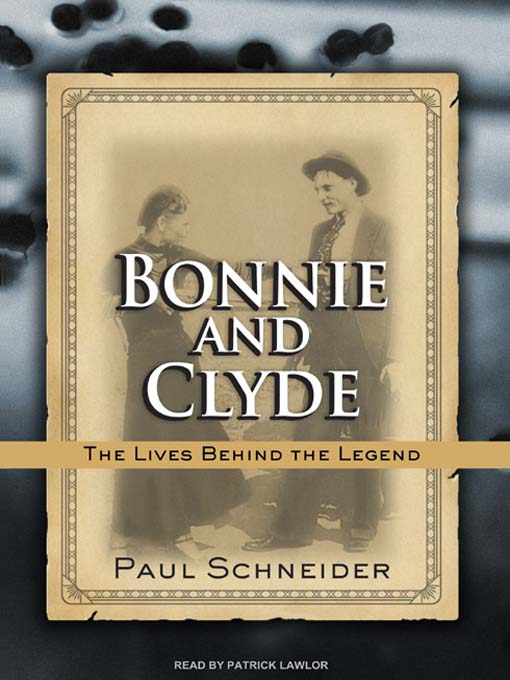
Bonnie and Clyde
The Lives Behind the Legend
فرمت کتاب
audiobook
تاریخ انتشار
2009
نویسنده
Patrick Lawlorناشر
Tantor Media, Inc.شابک
9781400181438
کتاب های مرتبط
- اطلاعات
- نقد و بررسی
- دیدگاه کاربران
نقد و بررسی

Bonnie Parker wrote her own legend in poetry as she and lover Clyde Barrow eluded authorities throughout their robbery and murder spree during the Great Depression. Her poems are just one of the entry points to this story for author Paul Schneider and narrator Patrick Lawlor. From time to time, Lawlor shifts into a portrayal of their thoughts, including their consciences, complete with the drawls of their native Texas. He also delivers the "rat-a-tat" gunfire that is so much a part of their lives. More conventional devices--news reports, police logs, and the words of friends and witnesses--are also used to convey the escalation of their crimes. Some might be put off by the story's shifting point of view, but the technique draws listeners in. J.A.S. (c) AudioFile 2009, Portland, Maine

January 19, 2009
The lives and the legends of doomed outlaw lovers Clyde Barrow and Bonnie Parker unfortunately take a back seat to Schneider's narrative style in this heavily researched but poorly executed account. Despite his claim that no dialogue has been invented, Schneider's approach—addressing Clyde as “you” (“Feels like you and Bonnie are hot as hell everywhere”)—is jarring and irritating. Opening in 1934 when Bonnie and Clyde helped several prisoners break out from Eastham Prison Farm in Texas, , Schneider (Brutal Journey
) then rewinds to Clyde's hardscrabble youth in the slums outside Dallas, where he met Bonnie in 1930. The increasingly violent exploits of the Barrow Gang are evocative, especially Clyde's first—and arguably only—premeditated murder in 1931. Yet true to his style, even in their final moments in the ambushed, bullet-ridden car, Schneider forces on readers his own version of Clyde's last thoughts—“you remember Bonnie drinking hot chocolate”—and ruins what should have been a moment of literal and literary silence. B&w photos.

























دیدگاه کاربران